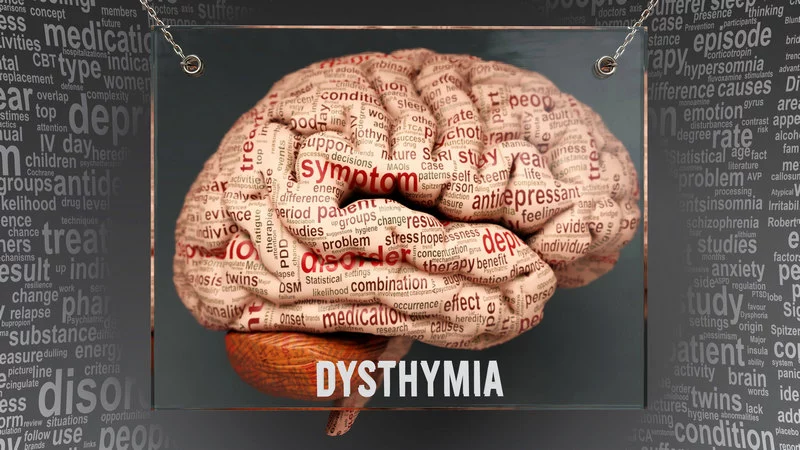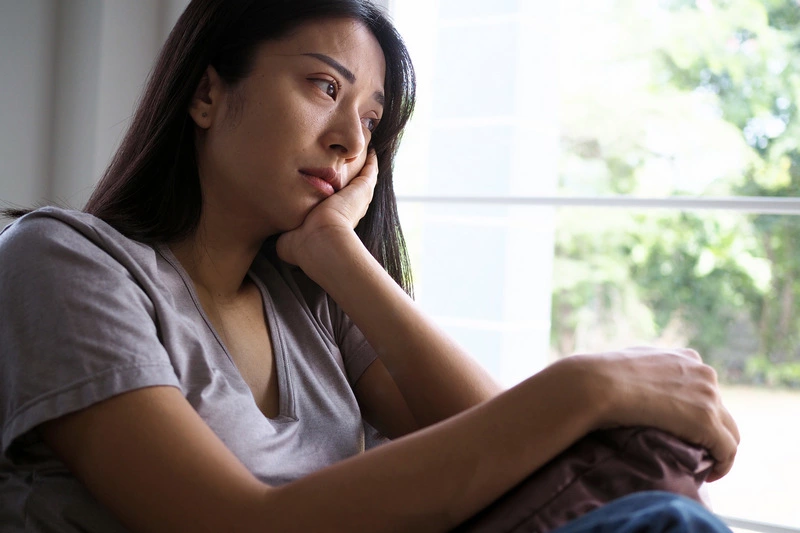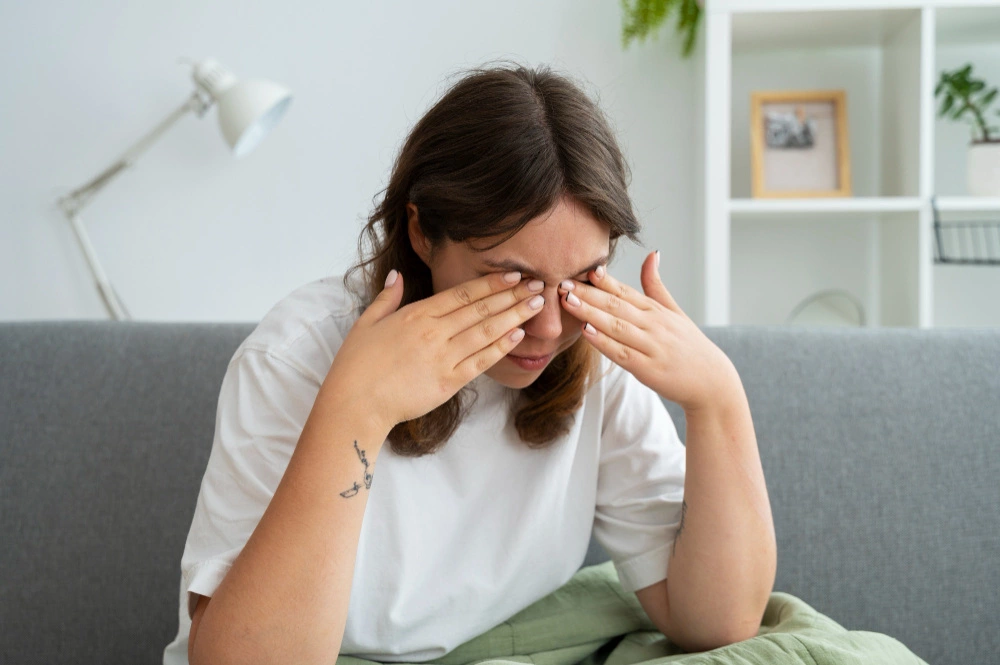Dysthymia and major depression are two common mental health disorders that affect millions of people worldwide. Although they share some similar symptoms, they have key differences in their duration and severity. Understanding these differences is crucial for accurate diagnosis and effective treatments.
Dysthymia vs. Major Depression: Why are the differences important?
Though dysthymia and major depressive disorder are similar, it is important to understand the differences between them for accurate diagnosis and treatment in affected patients. Though both involve a depressed mood, the difference between major depressive disorder and dysthymia could also mean a life with greater disruptions, increased symptoms, or limited treatments.
While both are serious mood disorders, dysthymia, or persistent depressive disorder, usually involve fewer symptoms that affect a person for a long time, usually 2 years. Major depressive disorder, conversely, will often involve more symptoms, and a person can be diagnosed with MDD once these symptoms persist for 2 weeks.
Because depression is a complex illness, people with depression cannot simply “be happier” or snap out of their depression. Treatment is essential to recovery, and recognizing the difference between dysthymia and major depressive disorder is the first step in providing patients with their ideal treatment options.
What are the Symptomatic Differences Between Dysthymia and Major Depression?
While dysthymia and major depressive disorder share some common symptoms, the two mood disorders differ in their severity and duration, meaning it is important to recognize where these disorders diverge to better diagnose and treat patients.

What is Dysthymia?
While both dysthymia and major depressive disorder share the symptom of a depressed mood on most days, there are several symptoms that are unique to an individual suffering from dysthymia. A person with dysthymia will often have at least two of the following signs persist for at least 2 years in addition to a depressed mood:
- Loss of appetite or overeating
- Problems sleeping
- Low energy or tiredness
- Low self-esteem
- Difficulty concentrating or making decisions
- Feelings of hopelessness
Dysthymia is two times as likely to affect women compared to men, and it may be associated with major depressive disorder or bipolar disorder. While there is no known cause for dysthymia, mental health professionals attribute it to a chemical imbalance in the brain, as chronic stress and trauma have been linked to this condition. However, environmental, biological, and genetic factors may also contribute.
These symptoms can also be iterative, meaning one symptom can lead to the development, or worsening, of another. For example, a person with dysthymia may not feel hungry and choose to skip out on meals. This can lead to a lack of energy or tiredness the person brings with them into the next day, meaning they might have trouble concentrating on their daily tasks, and potentially even struggle to get proper sleep at night. Understanding dysthymia as a persistent form of depression is necessary when considering possible steps forward for these individuals.
What is Major Depressive Disorder?
Though major depressive disorder, like dysthymia, is characterized by a worsened mood, people suffering from depression will often experience a greater number of symptoms than people with dysthymia. To be diagnosed with major depressive disorder, a patient will display at least 5 of the following symptoms for at least 2 weeks:
- Depressed mood
- Loss of interest or pleasure in the manor or all activities
- Sleep problems
- Noticeable weight loss or weight gain
- Faster or slower movements noticed by others
- Tiredness or low energy
- Problems thinking or making decisions
- Thoughts of guilt or worthlessness
- Repeated thoughts of death or suicide, or an attempt at suicide
While some of these symptoms are also characteristic of dysthymia, they will often be more severe in a patient with major depressive disorder. Like dysthymia, women are more likely to suffer from major depressive disorder compared to men and MDD is also likely caused by a mix of life events and other factors.
These symptoms, especially when taken together, can severely impact a person’s day-to-day activities. A person may not sleep enough at night, leading to exhaustion at work or school, and this person might even withdraw from certain social activities. If they don’t see loved ones for a while because of their withdrawal, a person may experience feelings of guilt that continue to contribute to other feelings of loneliness and depression. Major depressive disorder is a cyclical disease that, if not caught early and allowed to fester, can severely impact a person’s life.

Major Depression vs. Dysthymia: What are the Differences?
The chart below displays another way to visualize the differences between major depressive disorder and dysthymia. Remember that another key note differentiating the two disorders is their duration, with a major depressive disorder affecting patients for at least two weeks while dysthymia requires the persistence of symptoms for at least two years.
Major Depressive Disorder
- Loss of interest or pleasure in many or all activities
- Noticeable weight loss or weight gain
- Faster or slower movements noticed by others
- Problems thinking or making decisions
- Thoughts of guilt or worthlessness
- Repeated thoughts of death or suicide, or an attempt at suicide
Both
- Depressed mood
- Problems sleeping
- Low energy or tiredness
Dysthymia
- Loss of appetite or overeating
- Low self-esteem
- Difficulty concentrating or making decisions
- Feelings of hopelessness

What Are the Treatment Options for Dysthymia and Major Depression?
Though dysthymia and major depression are both severe mood disorders, luckily there are treatment options for each. For both dysthymia and depression, a doctor might recommend anti-depressants, a type of drug that rebalances chemicals in the brain to improve mood and functioning. There are several types of antidepressants, though which your doctor will prescribe is less dependent on whether you are diagnosed with dysthymia or major depression but more dependent on other contributing factors and what other medications you are currently taking.
Though medication is one of the main ways doctors will aim to treat both dysthymia and depression, your doctor may also recommend therapy to better your coping processes and teach you how to identify and prevent harmful thoughts when they occur. Therapy can also help patients manage stress, work through long-time challenges, discover patterns in behaviour, and provide thoughtful strategies to employ when falling back into harmful patterns.
Key Takeaways: Dysthymia and Major Depression
While dysthymia and major depression are both severe mood disorders, there are key differences in the presentation of each. While major depression tends to affect individuals intensely for periods of at least two weeks, dysthymia is usually less severe but affects individuals for at least two years. If any of these symptoms sound familiar to your experience, it is important to seek professional help for accurate diagnosis and treatment. It is possible to relieve your depression.
